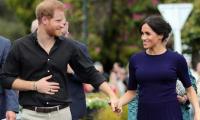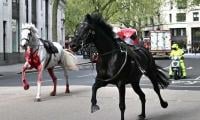WASHINGTON: The US Supreme Court on Tuesday left in place the last remaining conviction of a Yemeni man who was put on trial before a special military tribunal at the Guantanamo Bay US naval base in Cuba for his role as an al-Qaeda publicist.
The justices declined to hear Ali Hamza al Bahlul’s appeal of a lower court’s ruling rejecting his claim that the military commission set up to deal with war crimes that convicted him in 2008 lacked the authority to prosecute him for the crime of conspiracy.
Under international law, conspiracy is not considered a war crime, his lawyers had argued. Bahlul, who made videos as part of his work for late al-Qaeda leader Osama bin Laden’s organisation, was captured in Pakistan three months after the Sept 11, 2001, attacks on the United States and was transferred to Guantanamo Bay.
A military commission convicted him of three crimes -- conspiracy, providing material support for terrorism and solicitation of others to commit war crimes -- and sentenced him to life in prison.
A federal appeals court in 2014 threw out his convictions on all but the conspiracy charge. The US Supreme Court has not taken up a Guantanamo case since its 2008 ruling that allowed detainees held there to challenge their imprisonment in American civilian courts in a case involving an Algerian man named Lakhdar Boumediene.
A nine-judge panel of the US Court of Appeals for the District of Columbia Circuit ruled 6-3 against Bahlul last year. The United States has used military commissions, created during the administration of Republican former President George W.
Bush, to conduct trials of a number of foreign terrorism suspects held at Guantanamo rather than prosecuting them in regular military courts or civilian courts. Bahlul recorded recruiting videos and taped the wills of some of the hijackers who flew commercial jetliners into New York City’s World Trade Centre, the Pentagon outside Washington and a Pennsylvania field during the Sept 11 attacks.
The World Meteorological Organisation flag. — AFP FileGENEVA: Global temperatures hit record highs last year, and...
This image shows the outside view of the U.S. Senate. — AFP/FileWASHINGTON: Billions of dollars in foreign aid for...
Each year, many African migrants brave the perilous “Eastern Route” across the Red Sea and through war-scarred...
State Department US building can be seen in this picture. — AFP/FileWASHINGTON: The U.S. State Department’s annual...
Former US president Donald Trump. — AFP/FileNEW YORK: The judge overseeing Donald Trump’s criminal hush money...
Abortion-rights activists hold a protest on in Phoenix, USA. — AFP/File WASHINGTON: The idea of a doctor in the...







